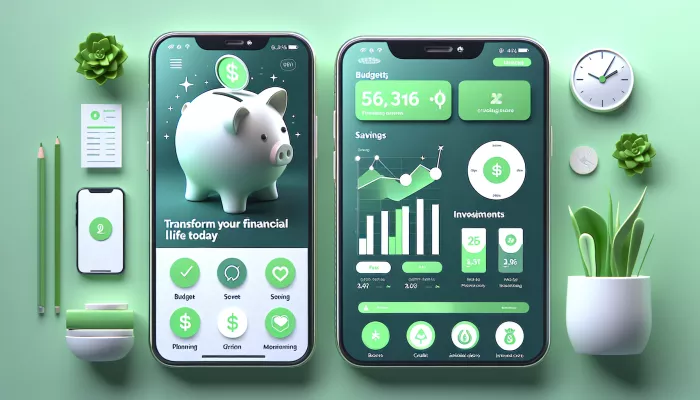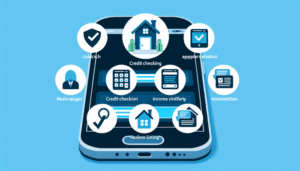A proper money management is one of the pillars for conquering estabilidade financeira and, in the long term, to achieve the long-awaited financial autonomy.
Personal financial control goes far beyond just “saving what's left over at the end of the month”: it involves planning, discipline, intelligent use of the tools available and a growth mindset.
In this complete guide, you will learn the essential foundations to organize your finances, avoid debt, invest strategically and achieve greater security in the future.
📊 Understanding Your Finances
Before planning any strategy, it is essential to understanding your current financial situation. This means collecting all the figures and organizing them clearly:
-
Assets: what you own (car, house, investments, savings).
-
Liabilities: what you owe (loans, financing, card debts).
-
Income: salary, extra income, dividends or any source of money.
-
Expenses: fixed and variable expenses, from household bills to leisure.
➡️ Having this vision is like looking at the x-ray of your financial life. Only then will you be able to make informed decisions about how to spend, save and invest.
🎯 Set Financial Goals
One of the most common mistakes is living without clear goals. When you define specific financial targets, Your motivation increases and your chances of success multiply.
Use the methodology SMART to define your goals:
-
S (Specific): “I want to raise R$ 10,000 in 12 months”.
-
M (Measurable): monitor progress on a monthly basis.
-
A (Attainable): set a realistic value.
-
R (Relevant): connect the goal to something important to you (e.g. buying a house, traveling, paying off debts).
-
T (Timeframe): set a deadline for achieving the goal.
➡️ Without goals, financial control lacks direction. With them, you create focus and discipline.
💰 Monthly Budget: The Pillar of Financial Control
A budgeting is one of the most important foundations of financial organization. Creating a monthly budget allows you to visualize where your money is going and identify waste.
How to set up your budget:
-
List all your recipes.
-
Record your fixed expenses (rent, electricity bills, internet, transportation).
-
Record variable expenses (food, leisure, shopping).
-
Set aside a portion for savings and investments.
A very practical rule is 50-30-20:
-
50% of income for necessities (housing, food, transportation).
-
30% for desires (travel, leisure, hobbies).
-
20% for savings and investments.
➡️ If you feel that “the money is disappearing”, creating a budget is the first step towards regaining control.
📝 Spending Control: Know Your Financial Behavior
We often spend on small things without realizing it. The daily coffee, impulse purchases or constant delivery can add up to hundreds of dollars at the end of the month.
Tips for monitoring your spending:
-
Use spreadsheets in Google Sheets or Excel.
-
Try apps like Mobills, Organizze or GuiaBolso.
-
Write it down manually in a notebook (if you prefer).
➡️ The important thing is not the tool, but the consistency. If you control your spending, you control your financial life.
💵 Saving and Investing: Make Money Work for You
Saving money is essential, but investing is essential to increase your assets and protect your future.
The difference between saving and investing:
-
Poupança: save money safely, but with a low return.
-
Investment: invest your money in assets that can generate a return (Direct Treasury, CDBs, Real Estate Funds, Shares).
➡️ If you're a beginner, start with Selic Treasury or CDBs with daily liquidity, which are safe and easy to understand.
Over time, try to learn about variable income and diversification.
🔑 Effective Strategies for Personal Financial Control
Once you understand the fundamentals, it's time to adopt practical strategies to guarantee long-term results.
Set a strict budget
Maintaining discipline is essential. It's not enough just to write it down follow what was planned.
Create an Emergency Reserve
Unforeseen events happen - unemployment, health problems or unexpected expenses. The ideal is to have 3 to 6 months of fixed expenses stored in an easily retrievable application.
Avoid unnecessary debt
Credit cards and loans can become traps. Whenever possible, pay in full and avoid abusive interest rates.
Invest in Financial Education
Books, courses and blogs are valuable sources for expanding your knowledge. The more you learn, the better prepared you will be to make intelligent decisions.
Use Digital Tools
Applications such as Mint, YNAB and Personal Capital help you visualize budgets, plan goals and control spending in real time.
⚠️ Avoiding Common Mistakes in Personal Financial Control
Maintaining good financial management may seem challenging, but knowing the most common mistakes helps prevent them:
-
Ignore the budget: Believing that you can control it “head on” is a classic mistake.
-
Disregard small expenses: they accumulate and compromise the budget.
-
Not having an emergency reserve: it only takes one unforeseen event to generate debt.
-
Living above the standard of living: Spending more than you earn is the main cause of debt.
➡️ Identifying and correcting these errors is fundamental to maintaining the financial health.
📲 Useful Tools and Apps
Today there are several tools that make personal financial control easier. Check out some of the options:
-
Mint: excellent for budgeting and tracking expenses.
-
You Need a Budget (YNAB): method of giving “work for every dollar”, avoiding waste.
-
Personal Capital: great for tracking expenses and monitoring your net worth.
-
Mobills: Brazilian app focused on everyday life.
-
Organizze: simple interface for those just starting out.
✅ Conclusion: Your Financial Future Starts Today
O personal financial control it's not just about cutting spending, it's about conscious choices that guarantee freedom in the future.
To understanding your finances, set clear goals, create a budget, controlling spending, investing smartly e avoiding common mistakes, you'll be well on your way to building a balanced and prosperous financial life.
Remember: there is no magic formula, but discipline, patience and constant learning. The future you want depends on the choices you make today.
📌 Extra tip: start small, but start. With each step, your financial security will increase.






